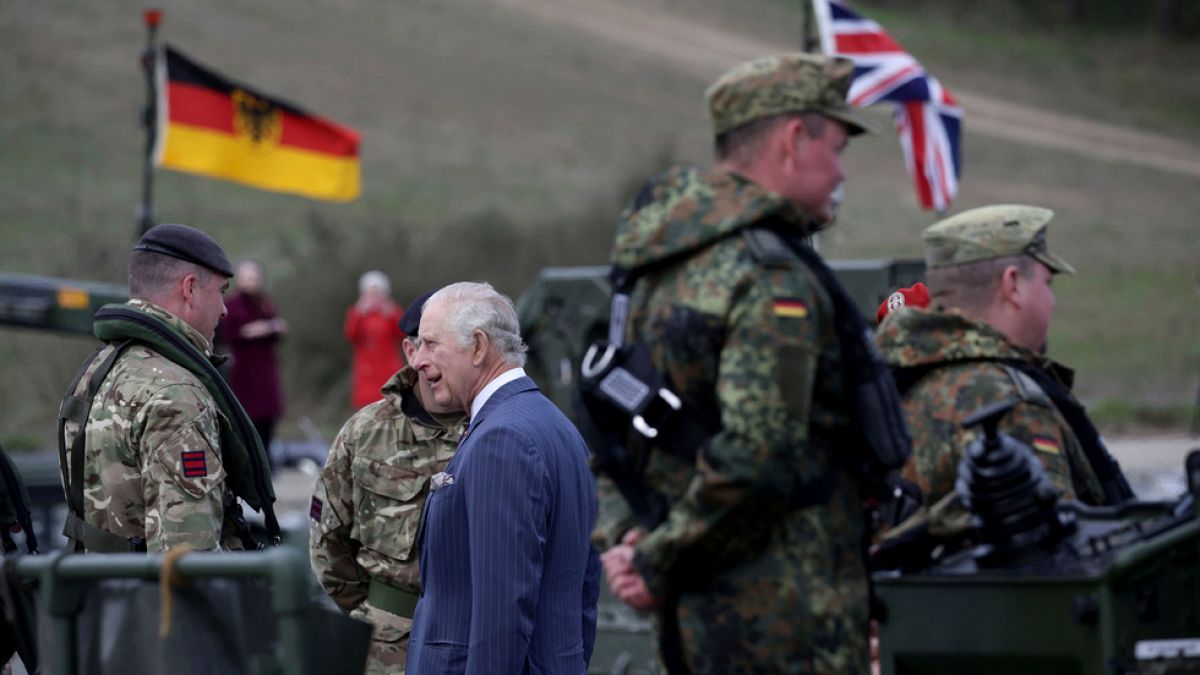Could Europe reintroduce conscription in view of the impending war?

The large-scale invasion of Ukraine has required a reassessment of post-Cold War calculations that assumed a reduction in the size of European armed forces.
Following Russia’s invasion of Ukraine, the debate about conscription has flared up again across Europe. Many countries are considering whether conscription could strengthen their national security.
In the 19th and 20th centuries, European mass armies relied heavily on conscription. But after the Cold War, these mass armies were systematically reduced in size.
The Stockholm Peace Research Institute SIPRI reports that military spending in Western Europe fell from an average of 2.4 percent to 1.6 percent of GDP during this period.
In 1990, West Germany alone had 215 combat battalions. However, despite German reunification, this number dropped to just 31 battalions by 2023 – an astonishing reduction of 84%.
Similar declines occurred in Italy and Britain, with the number of Italian battalions falling by 67% while that of British battalions was almost halved.
It was assumed that the era of great conflict in Europe had come to an end and had been replaced by an era of relative peace and stability.
But recent geopolitical developments, particularly the Russian invasion of Ukraine, have necessitated a reassessment. With defence budgets shrinking, the readiness and ability of European armed forces to respond to even traditional threats is now being called into question.
While Europe’s policy analysts and some governments increasingly recognize that the status quo in regional security and defense is no longer sustainable, opinions differ over whether conscription should play a role in this.
While Eastern European countries such as Latvia and Lithuania have already reintroduced some form of conscription, this idea is also gaining momentum in Western Europe.
In Germany, conscription was introduced in 1956, requiring men over 18 to perform one year of military service. This practice was gradually phased out as part of cost-cutting measures and finally abolished in 2011. But now various forms of conscription are being discussed again.
Patrick Sensburg, president of the German Reserve Soldiers Association, told Euronews that the country should introduce a mandatory year of service for young people.
“Germany needs a strong overall defence and the sustainability that goes with it for a serious and credible deterrent,” he said. “It is not about reintroducing the old conscription, but about a broad and general service that includes all levels of civil and military defence.”
He stressed that this model would increase the number of reservists, thus ensuring faster operational readiness and deterring potential attackers.
While Sensburg acknowledged that reintroducing conscription would entail significant costs, he argued that inaction would be even more costly.
For many years, European armed forces assumed that future conflicts would depend to a large extent on high technology.
Linda Slapakova, head of the Defense Personnel and Armed Forces Community research portfolio at RAND Europe, highlighted the complexity of reintroducing conscription.
“The Russian invasion of Ukraine has certainly prompted more countries to consider new ways to strengthen their military capabilities, which could include conscription or national service,” she told Euronews.
However, she also stressed that military service takes very different forms and does not always involve compulsory military service for all young people.
Some countries, such as Austria, offer a choice between military and civilian service. This model may be more feasible for other countries that are uncomfortable with the social and political implications of conscription or compulsory service.
In which European countries does conscription still exist?
Countries that have reintroduced conscription in recent years include Latvia, Lithuania and Sweden.
Cyprus, Greece, Turkey, Austria, Switzerland, Denmark, Estonia, Finland and Norway have never suspended conscription.
Norway and Sweden have introduced so-called selective conscription, a system in which candidates for military service are selected based on their motivation and qualifications.
Politicians in the Netherlands and Germany expressed their admiration for the “Swedish model” and signaled interest in introducing a similar form of conscription.
Are Europeans ready to fight for their country?
However, the question that hangs over the entire debate is what policies European citizens are actually prepared to accept.
The debate over conscription reflects broader questions about the role of military service in today’s society. A recent Gallup poll found that only 32% of European Union citizens would be willing to defend their country in the event of war.
“Even if conscription would help solve the problems of military recruitment, it could be so socially and politically controversial in many countries that it would increase polarization, lead to backlash or social/political unrest, and undermine the overall security benefits it might bring,” says Slapakova.
While some countries view military service as a means of strengthening social cohesion and resilience, these impacts are difficult to measure, she said.
She suggested that countries with an individualistic culture and little tradition of collective approaches to national security might have difficulty implementing conscription effectively in the short term.


